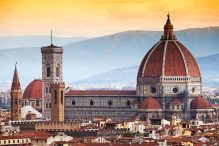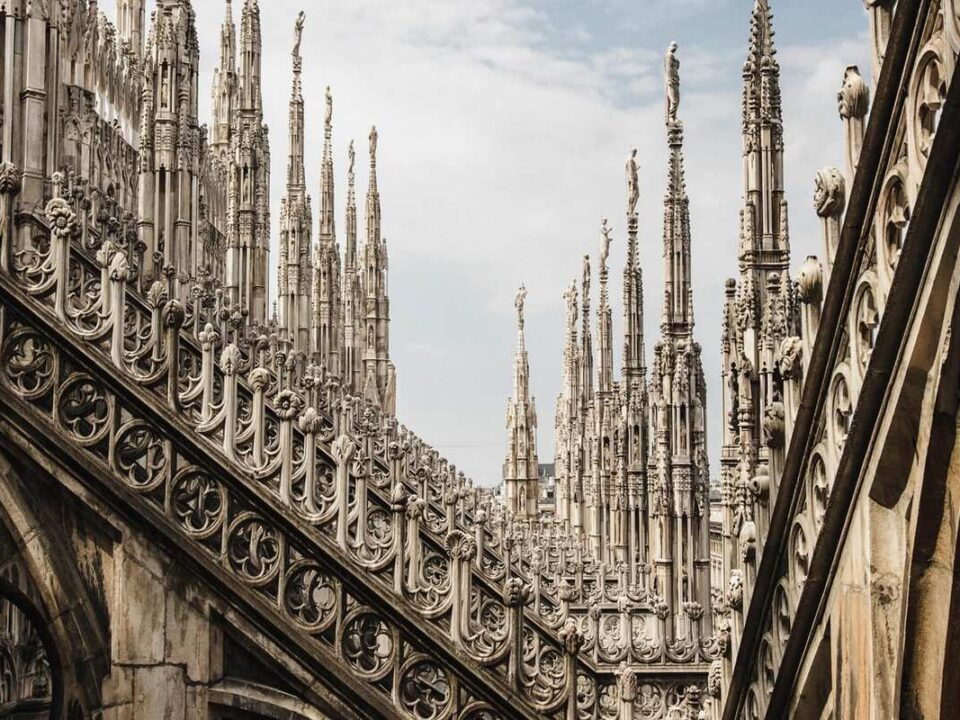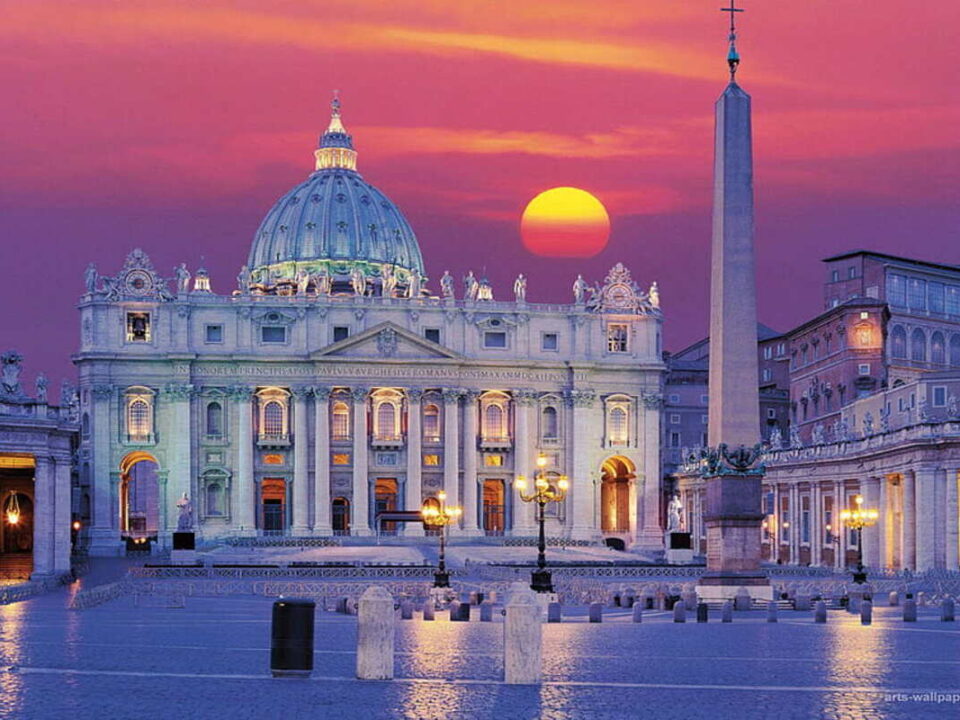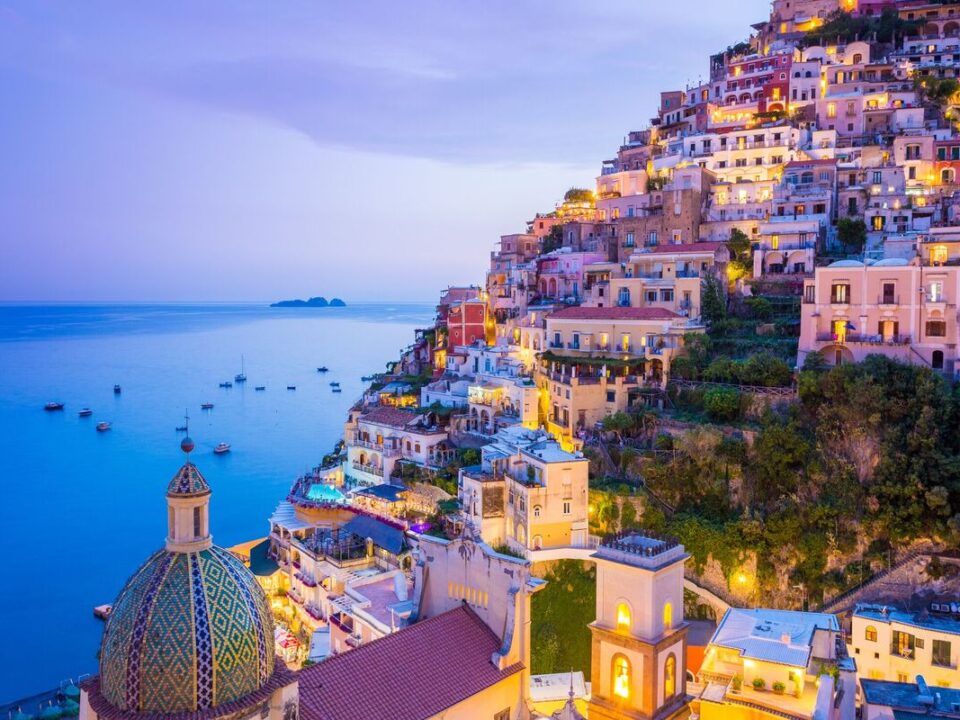Florence: The Cradle of the Renaissance
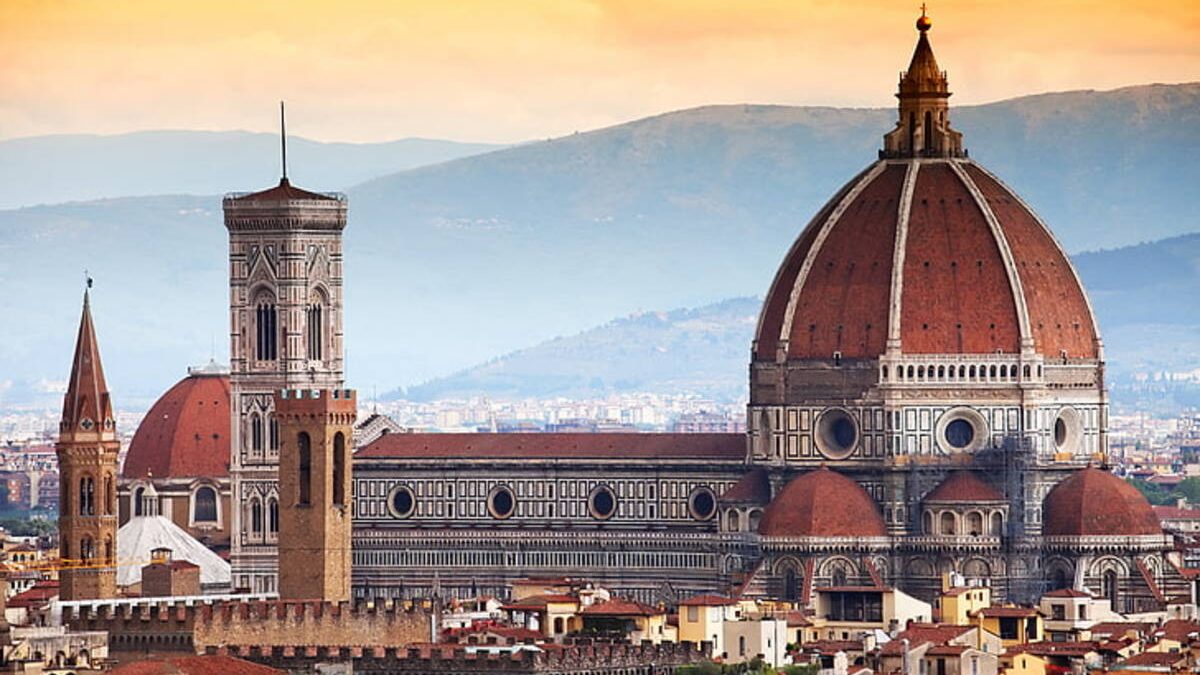
Florence: The Cradle of the Renaissance
Florence, or Firenze in Italian, is one of the most beautiful and historically significant cities in the world. Located in the heart of Tuscany, Florence is renowned for its rich cultural heritage, stunning architecture, and world-class museums. Known as the cradle of the Renaissance, Florence has inspired artists, writers, and thinkers for centuries. This comprehensive guide explores the history, attractions, museums, and unique features of Florence, offering an in-depth look at why this city is a must-visit destination for tourists.
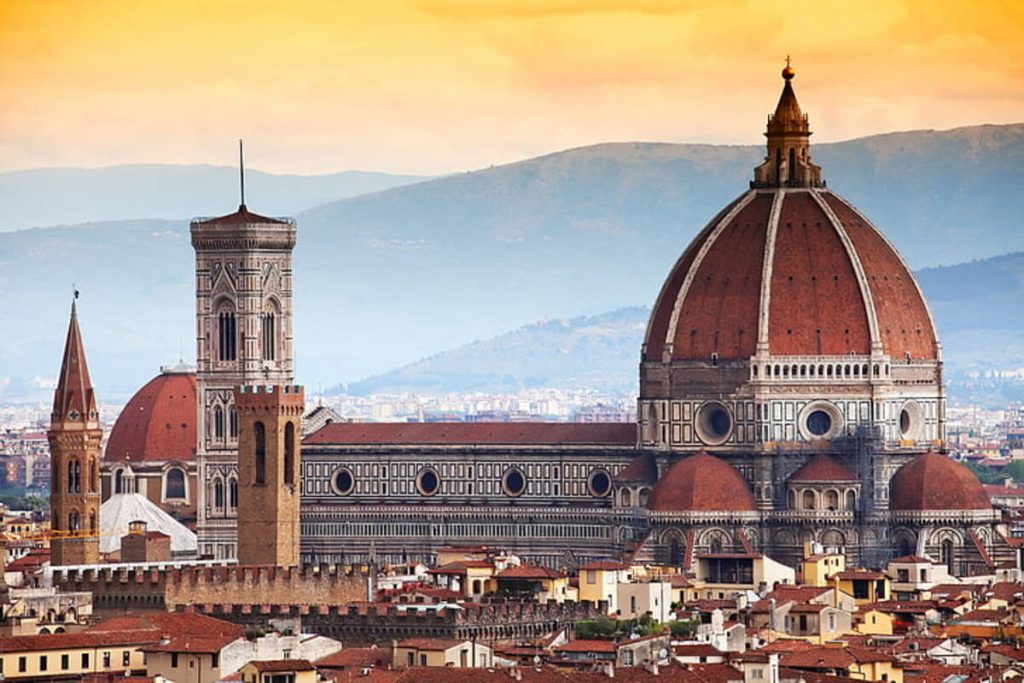
Historical Background
Florence’s history dates back to Roman times, when it was founded in 59 BCE as a settlement for veteran soldiers. Its strategic location along the Arno River made it an important commercial hub. However, it was during the Middle Ages and the Renaissance that Florence truly flourished.
Medieval Florence: During the 11th and 12th centuries, Florence became a powerful city-state. Its wealth was built on the textile trade, banking, and commerce. The city was ruled by influential families, such as the Medici, who played a crucial role in shaping its cultural and political landscape.
The Renaissance: The 14th to 17th centuries marked the peak of Florence’s cultural and artistic achievements. The Renaissance, a period of renewed interest in classical learning and values, began here. Florence was home to some of the greatest artists and thinkers of all time, including Leonardo da Vinci, Michelangelo, Dante Alighieri, and Niccolò Machiavelli. The Medici family, particularly Lorenzo de’ Medici, were great patrons of the arts, commissioning works that have become iconic symbols of this era.
Modern Era: After a period of decline and political turmoil, Florence became part of the Kingdom of Italy in 1861. Today, it is a vibrant city that attracts millions of visitors each year, drawn by its rich history, art, and architecture.
UNESCO World Heritage Sites
Florence’s historical and cultural significance is recognized by UNESCO, which has designated the Historic Centre of Florence as a World Heritage Site. This area encompasses the city’s most important monuments, buildings, and public spaces.
Florence Cathedral (Duomo): The Cathedral of Santa Maria del Fiore, commonly known as the Duomo, is the most iconic landmark in Florence. Its magnificent dome, designed by Filippo Brunelleschi, dominates the city’s skyline. The cathedral’s facade is adorned with intricate marble work, and its interior features stunning frescoes, including Vasari’s “Last Judgment” in the dome.
Piazza del Duomo: This historic square is home to several significant buildings, including the Baptistery of San Giovanni, known for its bronze doors, dubbed the “Gates of Paradise,” and Giotto’s Campanile, a beautifully designed bell tower offering panoramic views of the city.
Ponte Vecchio: One of the most famous bridges in the world, the Ponte Vecchio spans the Arno River and is lined with shops selling jewelry, art, and souvenirs. Its unique design and historical significance make it a must-see attraction.
Palazzo Vecchio: Overlooking the Piazza della Signoria, Palazzo Vecchio has been the seat of Florence’s government since the Middle Ages. This fortress-like palace houses impressive frescoes and works of art, and its tower offers breathtaking views of the city.
Uffizi Gallery: The Uffizi Gallery is one of the most important art museums in the world, housing an extensive collection of Renaissance masterpieces. Visitors can admire works by Botticelli, Leonardo da Vinci, Michelangelo, and Raphael, among others.
Basilica of Santa Croce: This Franciscan church is the burial place of many famous Italians, including Michelangelo, Galileo, and Machiavelli. Its stunning Gothic architecture and beautiful frescoes make it a significant cultural site.
Pitti Palace: Once the residence of the powerful Medici family, the Pitti Palace is now home to several museums, including the Palatine Gallery, the Royal Apartments, and the Gallery of Modern Art. The palace’s vast Boboli Gardens are a perfect place to relax and enjoy the beauty of Florence.
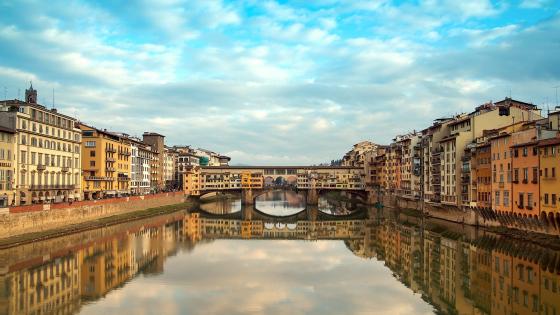
Museums in Florence
Florence boasts an impressive array of museums that showcase its rich artistic and cultural heritage. These institutions offer visitors a chance to explore the city’s history and appreciate its contributions to art and science.
Uffizi Gallery: As mentioned earlier, the Uffizi Gallery is a treasure trove of Renaissance art. Highlights include Botticelli’s “The Birth of Venus” and “Primavera,” Leonardo da Vinci’s “Annunciation,” and Michelangelo’s “Doni Tondo.” The gallery’s extensive collection spans from the Middle Ages to the Baroque period.
Accademia Gallery: This museum is home to Michelangelo’s David, one of the most famous sculptures in the world. The Accademia also houses other works by Michelangelo, including the unfinished “Prisoners,” as well as a collection of Renaissance paintings and musical instruments.
Bargello Museum: Located in a former prison, the Bargello Museum features an impressive collection of sculptures, including works by Donatello, Michelangelo, and Verrocchio. The museum also houses decorative arts, such as ceramics, textiles, and weapons.
Palazzo Pitti: In addition to its stunning architecture and gardens, the Pitti Palace hosts several museums. The Palatine Gallery displays works by Raphael, Titian, and Rubens, while the Gallery of Modern Art features Italian art from the 18th to the 20th centuries. The palace also includes the Museum of Costume and Fashion and the Porcelain Museum.
Museo dell’Opera del Duomo: This museum houses a vast collection of artworks and artifacts related to the Florence Cathedral. Highlights include Ghiberti’s original bronze panels from the Baptistery doors, Michelangelo’s “Pietà,” and Donatello’s “Penitent Magdalene.”
Galileo Museum: Dedicated to the history of science, the Galileo Museum showcases scientific instruments from the Renaissance to the 19th century. The museum’s collection includes telescopes, globes, and Galileo’s own instruments, offering a fascinating glimpse into the development of scientific knowledge.
Museo di San Marco: Located in a former Dominican convent, this museum is home to a remarkable collection of frescoes by Fra Angelico, one of the most important painters of the early Renaissance. The museum also features a library designed by Michelozzo and cells decorated with religious frescoes.
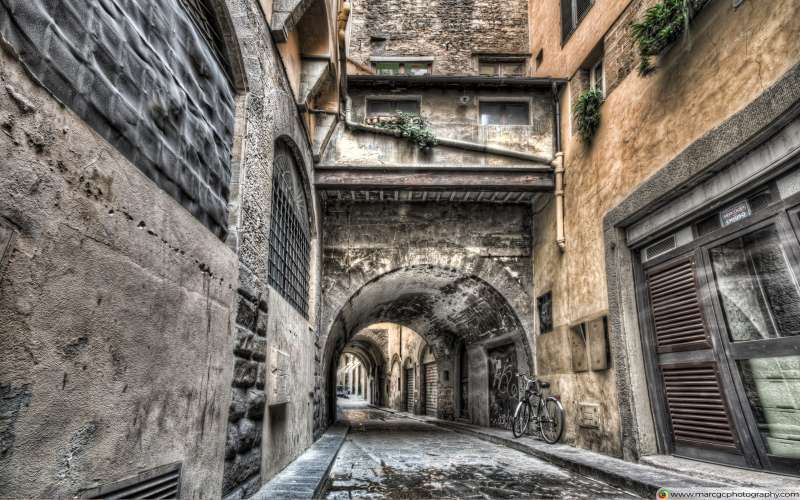
Tourist Attractions and Must-See Sights
Florence is brimming with attractions that cater to a wide range of interests. From historic landmarks and architectural marvels to scenic viewpoints and charming neighborhoods, there is no shortage of things to see and do in this captivating city.
Piazza della Signoria: This historic square is the political heart of Florence and home to several important landmarks, including Palazzo Vecchio and the Loggia dei Lanzi. The square is adorned with impressive statues, such as a replica of Michelangelo’s David and Cellini’s Perseus with the Head of Medusa.
Piazzale Michelangelo: For breathtaking panoramic views of Florence, head to Piazzale Michelangelo. This hilltop square offers a stunning vista of the city’s skyline, with the Duomo, Palazzo Vecchio, and Ponte Vecchio all visible. The square is also home to a bronze replica of Michelangelo’s David.
Basilica of San Lorenzo: This historic church, designed by Brunelleschi, is one of the oldest in Florence. The Medici Chapels, located within the basilica, are the final resting place of many members of the Medici family and feature stunning sculptures by Michelangelo.
Basilica of Santa Maria Novella: This Dominican church is known for its striking facade and beautiful frescoes. The interior houses works by artists such as Masaccio, Ghirlandaio, and Giotto. The adjacent cloisters and the museum offer additional insights into the history of the church and the Dominican order.
Santa Trinita: This church, located near the Ponte Santa Trinita, is known for its elegant Renaissance facade and beautiful interior. The Sassetti Chapel features frescoes by Ghirlandaio, depicting scenes from the life of St. Francis of Assisi.
San Miniato al Monte: Perched on a hill overlooking the city, the Basilica of San Miniato al Monte is one of the finest examples of Romanesque architecture in Tuscany. The church’s stunning facade, beautiful frescoes, and serene atmosphere make it a must-visit site. The adjacent cemetery, with its elaborate tombs and monuments, is also worth exploring.
Boboli Gardens: These beautifully landscaped gardens, located behind the Pitti Palace, offer a peaceful retreat from the bustling city. The gardens feature fountains, statues, grottoes, and manicured lawns, providing a perfect setting for a leisurely stroll.
Mercato Centrale: For a taste of local flavors, visit the Mercato Centrale, Florence’s central market. The market offers a wide range of fresh produce, meats, cheeses, and other local specialties. The upper level features a food court with various vendors serving delicious Italian dishes.
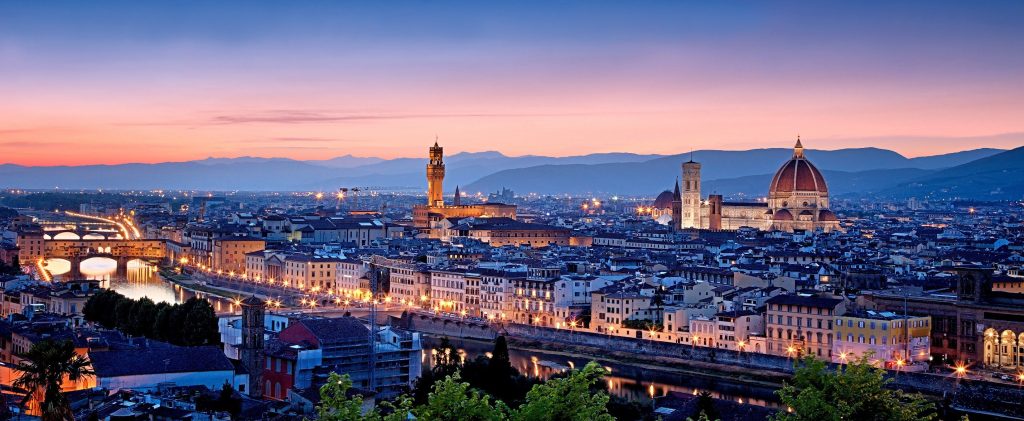
Unique Features and Charming Aspects of Florence
Florence’s charm lies in its blend of historical grandeur and vibrant modern culture. The city’s unique features and enchanting aspects make it a delightful destination for travelers.
Renaissance Architecture: Florence’s skyline is dominated by its stunning Renaissance architecture. The city’s historic center is a treasure trove of beautifully preserved buildings, from grand palaces and churches to charming piazzas and bridges. Walking through Florence feels like stepping back in time to the height of the Renaissance.
Artistic Heritage: Florence is synonymous with art, and its rich artistic heritage is evident throughout the city. From world-renowned museums and galleries to public sculptures and
frescoes, art is an integral part of Florence’s identity. The city’s commitment to preserving and celebrating its artistic legacy is one of its most endearing qualities.
Cultural Events: Florence hosts a variety of cultural events and festivals throughout the year, showcasing its vibrant arts scene. Highlights include the Maggio Musicale Fiorentino, an annual music and opera festival, and the Florence Biennale, an international contemporary art exhibition. These events offer visitors a chance to experience the city’s dynamic cultural life.
Culinary Delights: Florence is a food lover’s paradise, with a culinary tradition that emphasizes fresh, local ingredients and simple yet delicious flavors. Traditional dishes include bistecca alla fiorentina (Florentine steak), ribollita (vegetable and bread soup), and lampredotto (tripe sandwich). The city’s bustling markets, charming trattorias, and fine dining restaurants offer a wide range of dining experiences.
Shopping: Florence is renowned for its high-quality craftsmanship and luxurious goods. The city is a hub for leather goods, jewelry, and fashion. Visitors can explore the boutiques and workshops of local artisans, as well as high-end designer stores. The Oltrarno district is particularly known for its artisanal shops and studios.
Nightlife: Florence’s nightlife scene offers something for everyone, from elegant wine bars and chic cocktail lounges to lively pubs and dance clubs. The city comes alive after dark, with locals and visitors alike enjoying the vibrant atmosphere. Popular nightlife areas include the Piazza Santo Spirito and the Via dei Benci.
Scenic Beauty: Florence’s location in the heart of Tuscany provides easy access to the region’s stunning landscapes. The rolling hills, vineyards, and olive groves of the surrounding countryside offer a picturesque backdrop for day trips and excursions. The nearby towns of Fiesole and San Gimignano are perfect for exploring Tuscany’s scenic beauty.
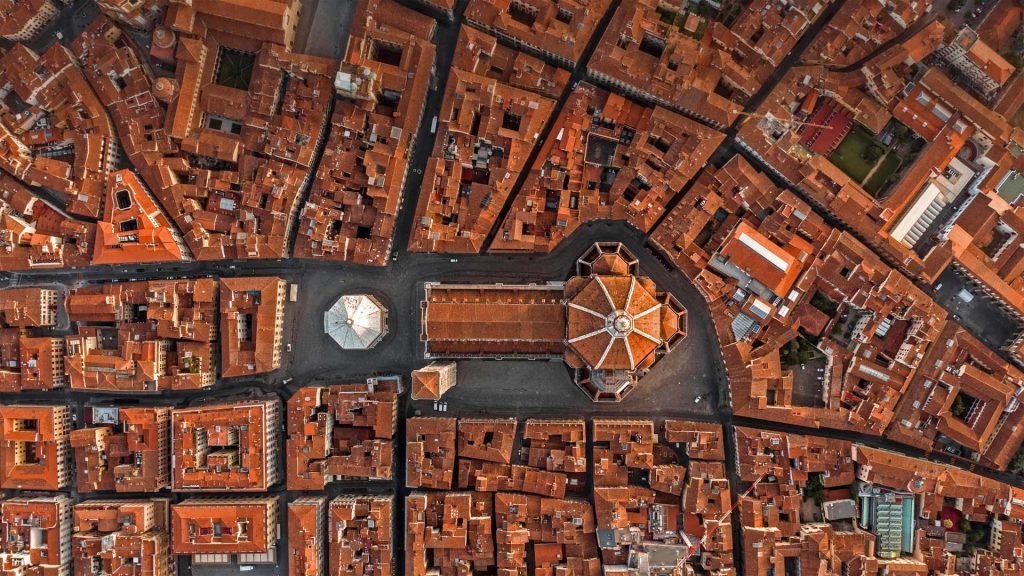
Practical Tips for Tourists
To make the most of your visit to Florence, consider the following practical tips and recommendations:
Plan Ahead: Florence is a popular tourist destination, so it’s essential to plan your visit in advance. Book tickets for major attractions and museums online to avoid long lines. Research opening hours and any special events or closures that may affect your itinerary.
Accommodation: Florence offers a wide range of accommodation options, from luxury hotels and boutique guesthouses to budget-friendly hostels and vacation rentals. Choose a location that suits your preferences and budget, and book early, especially during peak tourist seasons.
Getting Around: Florence’s historic center is compact and easily walkable, allowing you to explore many of the city’s attractions on foot. Public transportation, including buses and trams, is available for longer distances. Taxis and ride-sharing services are also convenient options.
Cultural Etiquette: Respect local customs and cultural etiquette while visiting Florence. Dress modestly when visiting churches and religious sites, and be mindful of noise levels in residential areas. Tipping is appreciated but not obligatory in restaurants and cafes.
Safety: Florence is generally a safe city for tourists, but it’s essential to take common-sense precautions. Keep an eye on your belongings, especially in crowded areas, and be aware of your surroundings. Avoid walking alone late at night in unfamiliar areas.
Local Experiences: To fully immerse yourself in Florentine culture, consider participating in local experiences such as cooking classes, wine tastings, and guided tours. These activities offer a deeper understanding of the city’s traditions and way of life.
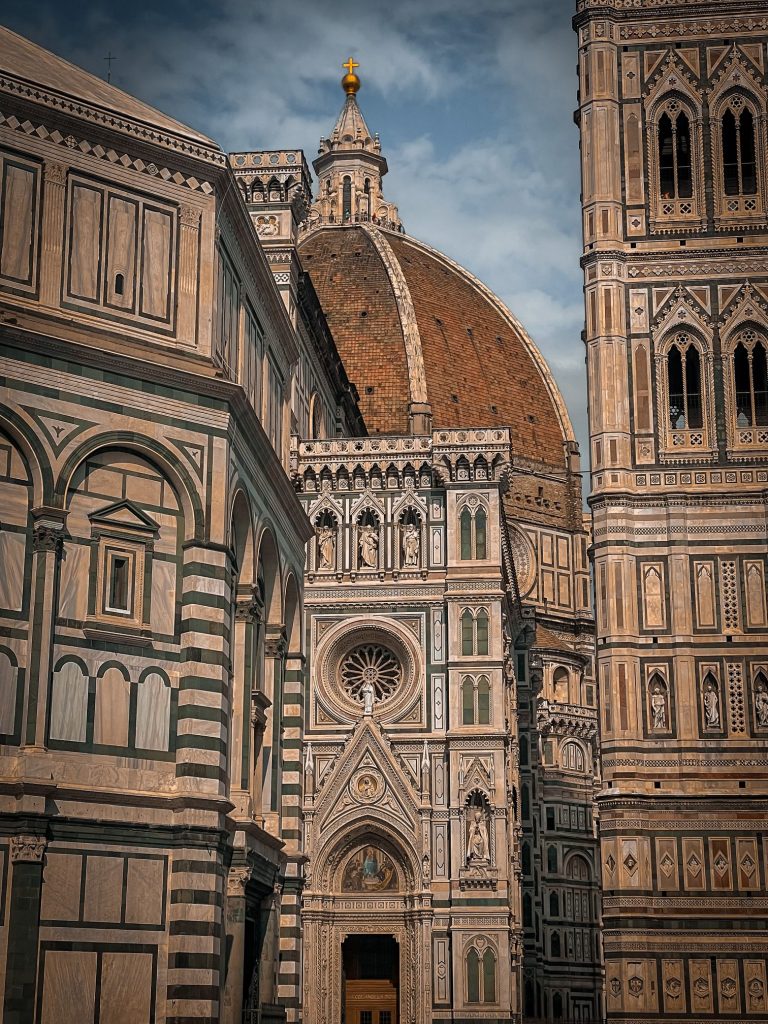
Conclusion
Florence, with its rich history, artistic heritage, and timeless beauty, is a city that captivates and inspires. From its iconic landmarks and world-class museums to its charming neighborhoods and vibrant cultural scene, Florence offers an unparalleled travel experience.
As the cradle of the Renaissance, Florence’s contributions to art, architecture, and culture have left an indelible mark on the world. Its status as a UNESCO World Heritage Site underscores its significance and the importance of preserving its unique heritage.
Whether you’re exploring the grandeur of the Duomo, strolling along the picturesque Ponte Vecchio, or savoring the flavors of Tuscan cuisine, Florence promises an unforgettable journey through history and culture. Embrace the magic of this enchanting city, and discover why Florence remains one of the most beloved destinations in the world.
thecoins24 Bitcoin News Cryptocurrency airdrop theforex24 Forex News Aypa Group Aypa Website developer Aypa SEO
italyeducation تحصیل در ایتالیا تحصیل رایگان در ایتالیا پذیرش تحصیلی در ایتالیا دانشگاه های ایتالیا بورسیه تحصیلی ایتالیا Aypa Digital Marketing Forex Calculator
Aypa SEO
-
Florence: The Cradle of the Renaissance
Florence: The Cradle of the Renaissance Florence, or Firenze in Italian, is one of the most beautiful and historically significant cities in the world. Located in […]

